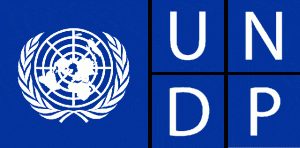
The volume of sales of enterprises in the service sector of Ukraine in the third quarter of 2020 amounted to UAH 238.3 billion, which in comparable prices is 5.5% lower than the level of the third quarter of 2019, the State Statistics Service has said.
According to the report, the volume of services sold to the population amounted to 19.3% of the total volume of services rendered.
The State Statistics Service reminds that in the first quarter of 2020 the volume of sales of service enterprises decreased by 1.7%, in the second quarter by 18.3%.

SkyUp (Kyiv) in the summer program of 2021 has planned more than 60 routes to 21 countries, of which 50% are from the regions.
According to the press service of the company, in particular, in addition to flights to France, Italy, Greece, the Czech Republic, Georgia, Spain, Bulgaria, Armenia, Turkey, Israel and Cyprus the company will fly to Portugal, Poland, Germany, Denmark, Jordan, Sweden, Serbia, the Netherlands and Slovakia.
SkyUp plans to fly from Zaporizhia to Georgia, Greece, the Czech Republic, Spain, Turkey and Cyprus, from Lviv to Georgia, Greece, the Czech Republic, Italy, Spain, Turkey, Bulgaria, France and Israel, from Kharkiv to Georgia, Greece, the Czech Republic, Italy, Spain, Bulgaria and Cyprus, from Odesa to Georgia, the Czech Republic, Spain, Turkey, Armenia and the Netherlands.

The United Nations Development Program (UNDP) backs the idea of creating a free economic zone in the east of Ukraine, as new jobs will contribute to poverty reduction, rapid and sustainable economic development, greater resilience and prosperity, Resident Representative of the United Nations Development Program (UNDP) in Ukraine Dafina Gercheva said.
“We welcome the government’s reintegration initiatives: revitalizing local economies has proven to be very important in restoring the economy and social fabric in conflict-affected countries around the world. The conflict has severely affected Donetsk and Luhansk regions, resulting in bleak economic prospects, job losses, migration, poverty and social exclusion. UNDP stands ready to continue boosting local economy, strengthening social cohesion, and supporting peace building efforts,” Gercheva said in an interview with the Interfax-Ukraine information agency.
She noted that free economic zones have been successfully used as an instrument to galvanize and intensify economies, and the rationale behind this approach is to attract investors and generate employment. “The new jobs will contribute towards poverty reduction, rapid and sustainable economic development, enhanced resilience and increased prosperity. Eventually, such a zone may trigger a structural transformation, which is so much needed to move up the value chain. There are many areas where investment is lacking,” Gercheva said.
Therefore, this initiative would be able to solve this problem and offer new opportunities to local entrepreneurs, local communities, as well as social service providers, who today labour against outdated infrastructure and a lack of financial resources to reach everyone in these regions and meet their needs.
The resident representative stressed that this initiative would be able to solve this problem and offer new opportunities to local entrepreneurs, local communities, as well as social service providers, who today labour against outdated infrastructure and a lack of financial resources to reach everyone in these regions and meet their needs.
At the same time Gercheva noted that the initiative’s implementation is “quite realistic,” but there’s also a need to put in place the preconditions for its implementation, in particular, there is a need for full transparency and accountability when it comes to attraction and allocation of foreign direct or domestic investments. “Public authorities should be able to work effectively on the ground, upholding the rule of law, protecting human rights, ensuring access to justice and information, and addressing the needs of local communities,” she explained.
Gercheva also pointed out the need to restore ties with the population of the territories not controlled by the government of Ukraine.
“I leave the politics of conflict resolution to others, but what I care about – and what UNDP strives for on a daily basis – is to respond to the impact of the conflict: to repair the social fabric, to build forward better and greener, to recover, restore, repair and reconcile. This applies to infrastructure, jobs and the economy, and to people-to-people relations. All of this requires connectivity and cooperation. So we believe that bridges should be built and connections between people should be restored,” she said.
Gercheva emphasized that a long-term solution to peace-building is impossible without ensuring that the government communicates with the people, people keep in touch with each other, and that the systems are interconnected. I mean water supply, environmental protection, healthcare, social protection and so on. I’m convinced that it really is very important to start building bridges and thinking about how we can unite people, so that we can reconcile them as soon as possible and resolve the conflict,” the UNDP resident representative in Ukraine said.

SkyUp Airlines (Kyiv) on November 30, 2020 will operate a nonscheduled flight on the Baku (Azerbaijan) – Kyiv route.
The company’s press service said on Wednesday, the cost of tickets starts at UAH 9,067.
SkyUp said that according to the latest update of the list of countries in the “red” and “green” zones of the spread of coronavirus (COVID-19) disease, which was announced by the Health Ministry of Ukraine on November 6, 2020, Azerbaijan remains in the “green” zone.
After entering Ukraine from Azerbaijan, people do not need to self-isolate or take a PCR test. However, passengers need to have an insurance policy, which provides for treatment for COVID-19.

PrJSC Philip Morris Ukraine, a large tobacco producer, proposes to replace a 320% tax increase on tobacco products for electric heating, which should come into force on January 1, 2021, with an annual increase of 50% during 2022-2025 or 200% in 2021 and 20% in subsequent years.
According to the published letter of Philip Morris Ukraine CEO Konstantinos Salvaras to the president of Ukraine, a gradual increase in the excise tax on tobacco products for electric heating by 50% per year or by 200% in 2021 and by 20% in subsequent years will save the market from a total transition to the shadows and bring more revenues to the state budget than a sharp increase in the excise tax rate by 320%.
“We urge the government to move away from the practice of unpredictable and unstable tax policy, which affects both the attitude of investors and the economy of the country. Tax increases should be gradual, not fourfold,” the Philip Morris letter says.
The company reported that the government and academia share the vision of a gradual increase in the tax rate. Thus, the Ministry of Economic Development, Trade and Agriculture supports the idea of increasing the rate on tobacco products for electric heating by 50% from January 1, 2021 and by 50% during 2022-2025, and a study conducted by the Institute for Economics and Forecasting of the National Academy of Sciences of Ukraine shows that a gradual increase in the excise tax on tobacco products for electric heating will provide additional UAH 18.7 million of revenues to the state budget compared to a sharp increase in the tax rate.
According to Philip Morris’ estimates, a sharp increase in excise taxes will lead to the loss of potential and real investments, state budget revenues, an increase in the level of smuggling, and a conflict with EU legislation.

NPC Ukrenergo needs to attract UAH 11.3 billion under government guarantees for paying to electricity producers from renewable energy sources (RES) and state-owned generating companies, acting Energy Minister Yuriy Boiko has said.
“The debt to be paid off to the green power companies is UAH 9 billion, and according to our estimates, in order to maintain parity, the volume of funds raised will amount to UAH 11.3 billion,” he said at a press conference in Kyiv on Thursday.
At the same time, according to him, it is necessary to “repay debts in a balanced way”, which means their repayment both to RES producers and to state-owned generating companies involved in public service obligations (PSO).
He said that the bill No. 4119, which provides for Ukrenergo to receive government guarantees for loans to pay to the green power companies, is waiting for the president’s signing and will allow attracting the necessary loan.
“We are now on a schedule being realistic in terms of attracting loans,” Boiko said.
He also said that the current payments to RES producers will be provided, stressing that in August and September, the full payment to renewable energy generation has already been provided.